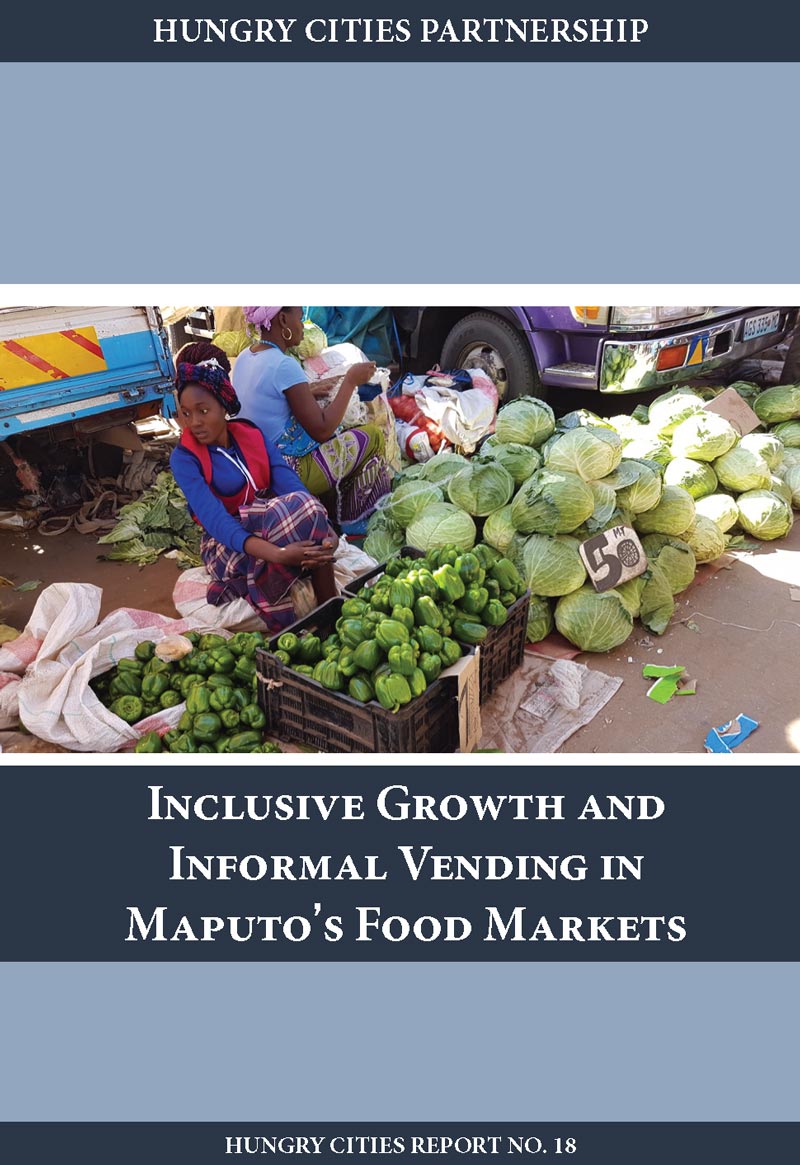The food markets in Maputo, Mozambique, play an integral role in the functioning of the urban food system and provide an abundant food source for the city’s residents. The Hungry Cities Partnership household food security survey found that over 90% of sampled households regularly shop for food at the markets and more than half do so at least five days per week. The markets also provide Maputo’s informal food vendors with relatively safe spaces in which to conduct their business. In most cities of the Global South, including Maputo, the informal food economy comprises a dense and diverse network of informal markets, suppliers, transporters, mobile traders, hawkers, retailers, and street food vendors making food more accessible and affordable in low-income areas. The informal sector is thus critical to the food security of poor urban households in rapidly growing cities in the Global South. While the vibrancy of the sector is everywhere apparent, research devoted to understanding the structure, dynamics, and impacts of informal food systems under conditions of hyper-urbanization has been limited. By working in an interdisciplinary context with mixed methodologies and across different cities, the Hungry Cities Partnership aims to add considerably to our understanding of common elements and differences across the Global South.

